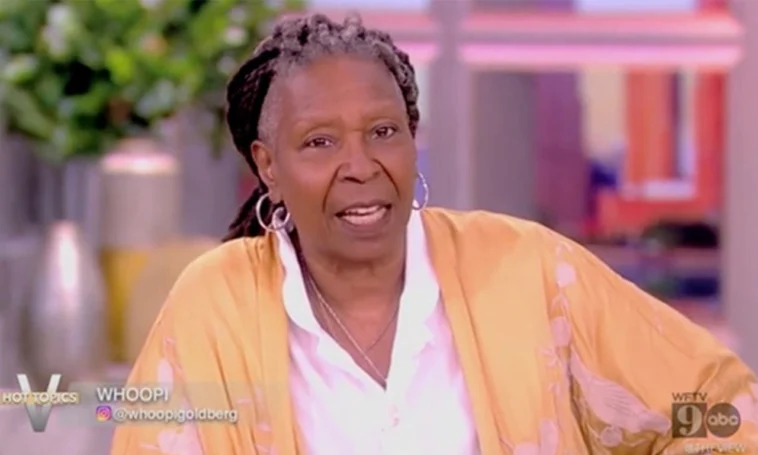Whoopi Goldberg grudgingly admits SCOTUS Colorado ruling was ‘right decision’ .The discussions surrounding the Supreme Court’s decision on whether to remove former President Trump from the Colorado ballot, as aired on “The View,” offer a glimpse into the complex dynamics of judicial interpretation, political polarization, and the implications of legal rulings on the democratic process.
Sunny Hostin’s perspective encapsulates the tension between recognizing the legal correctness of a decision while also questioning the potential for partisan influence within the judiciary. Hostin commended the Court’s ruling as the “right decision” but raised concerns about the perceived partisanship in the justices’ approach.
“They are saying the Supreme Court went too far here because they answered a question that wasn’t before them. The only question that was before this court was, can a state do this? Instead, what they did was they insulated all alleged insurrectionists from future challenges to their holding federal office,” Hostin said.
Her critique focuses on the expansion of the Court’s decision beyond the immediate question at hand, suggesting that the justices may have overstepped their bounds by addressing issues not directly relevant to the case. Hostin’s emphasis on the concurring opinions, particularly those of Justices Sotomayor, Kagan, and Jackson, underscores her belief in the importance of maintaining the integrity and impartiality of the judiciary.
Sara Haines echoed Hostin’s sentiments but approached the discussion from a different angle. While acknowledging the chaos that might have ensued had the Court ruled differently, Haines expressed a nuanced understanding of the potential ramifications of legal decisions.
Her recognition of the complexities inherent in legal interpretations highlights the need for careful consideration of the broader implications of judicial rulings, especially in cases as politically charged as this one. By acknowledging the possibility of disagreement with the outcome, Haines encourages a critical examination of the legal reasoning behind the Court’s decision.
Ana Navarro’s perspective adds another layer to the conversation by emphasizing the importance of allowing voters to make informed decisions at the ballot box. Navarro’s support for the Court’s ruling reflects a commitment to upholding democratic principles and respecting the electorate’s right to choose its representatives.
Her reference to Justice Roberts’ concerns about the potential consequences of intervening in state election processes underscores the broader implications of legal decisions on the functioning of democracy. Furthermore, Navarro’s call for Justice Clarence Thomas to recuse himself from cases involving Trump highlights the ethical considerations surrounding judicial impartiality and conflicts of interest.
Whoopi Goldberg’s reaction to the ruling reflects a sense of resignation tinged with frustration at the normalization of Trump’s actions. While acknowledging the legal validity of the Court’s decision, Goldberg expresses discomfort with the broader societal implications of allowing Trump’s behavior to go unchallenged. Her critique of the normalization of Trump’s actions underscores the importance of holding public figures accountable for their behavior, even in the face of legal rulings that may validate their actions.
Overall, the discussions on “The View” offer a microcosm of the broader debates surrounding the role of the judiciary in safeguarding democratic principles, the potential for partisan influence within the legal system, and the ethical responsibilities of public figures. Through their diverse perspectives, the co-hosts grapple with the complexities of legal interpretation, political polarization, and the delicate balance between upholding the rule of law and preserving the integrity of democratic institutions.
READ MORE
- Biden Could ‘Throw Every Republican In Jail’ If SCOTUS Rules In Trump’s Favour, Whoopi Goldberg Says



